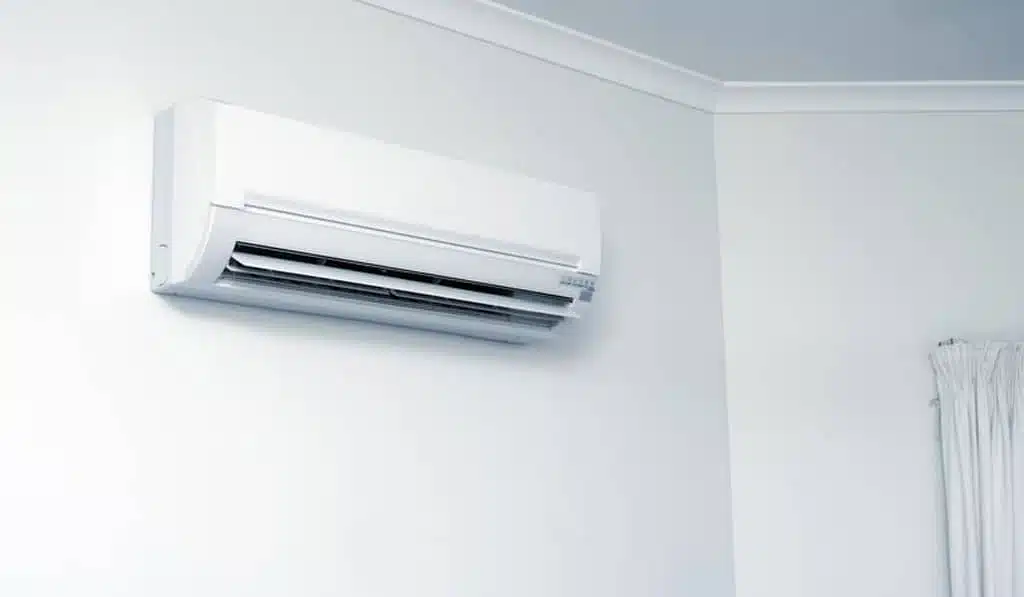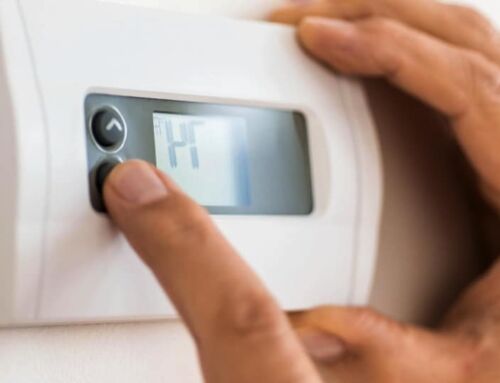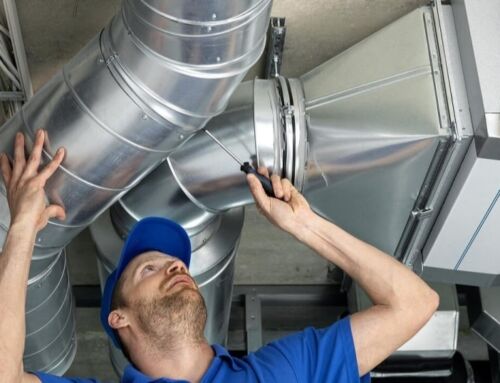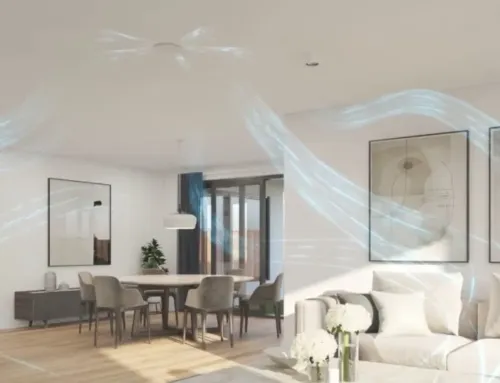As the sun scorches down on Sydney, maintaining a cool environment in your home or office is essential.
The quest for comfort brings us to two popular choices:
Evaporative cooling vs air conditioning.
Let’s explore how each one stands up to Sydney’s heat.
In this article, you’ll read:
- An overview of evaporative and aircon systems
- Key factors for comparing evaporative and aircon systems
- Actionable tips to help make your decision
Which heating and cooling option is the best fit for you? Read on as we compare the natural efficiency of evaporative systems with the dependable cooling of traditional AC?.
This guide will walk you through each option’s benefits and drawbacks, helping you make an educated decision for your space.
HUNTERCON TIP:
Evaporative Systems: Ideal for Open and Spacious Environments
- Best for open layouts and dry areas in Sydney.
- Suitable for spaces like workshops, garages, or patios.
Traditional AC: Versatility for Varied Spaces
- Perfect for smaller, enclosed spaces like apartments.
- Suitable for areas with higher humidity.
Discover the pros and cons of gas heaters compared to air conditioners in our comprehensive guide on choosing the right heating and cooling solution.
Evaporative Cooling vs. AC: An overview
Evaporative Systems
Evaporative cooling systems work by drawing in hot air and passing it through water-saturated pads. This process cools the air naturally, using evaporation, before releasing it back into your space. It’s akin to the cooling sensation you feel near a waterfall or after a light summer rain.
Pros:
- Energy Efficiency: Consumes significantly less electricity compared to traditional air conditioners, leading to lower energy bills.
- Environmentally Friendly: Uses a natural cooling process and does not rely on refrigerants, making it a greener choice.
- Fresh Air Flow: Continuously circulates fresh air, reducing the staleness often associated with closed environments.
Cons:
- Humidity Sensitivity: Less effective in high humidity, which can be a challenge during Sydney’s humid days.
- Limited Cooling Capacity: May not achieve the same level of cooling as air conditioners in extremely hot conditions.
- Regular Maintenance: Requires more frequent maintenance, such as pad cleaning and replacements.
Conventional AC
Air conditioners function by removing heat and moisture from the air. They are highly effective in maintaining a consistent, cool temperature, regardless of the outdoor heat and humidity levels.
Pros:
- Powerful Cooling: Provides significant cooling, capable of handling even the most extreme temperatures.
- Humidity Control: Dehumidifies the air, offering comfort even in muggy conditions.
- Versatility: Comes in various types, including split systems and ducted models, to suit different needs and spaces.
Cons:
- Higher Energy Consumption: Generally consumes more electricity, which can lead to higher energy bills.
- Environmental Impact: Uses refrigerants, which may have a larger environmental footprint.
- Air Quality: Can circulate the same air repeatedly, which might decrease indoor air freshness over time.
Key Factors in Your Choice
Choosing between evaporative cooling vs air conditioning involves weighing several critical factors.
From efficiency to environmental impact, each aspect plays a pivotal role in determining which system aligns best with your needs.
Let’s compare these two cooling solutions across various dimensions to aid your decision-making process.
Efficiency and Performance
- Evaporative Cooling: Peaks in efficiency in hot, dry conditions. Its performance dips in high humidity, which can be a concern in Sydney’s varied climate.
- Aircon: Delivers consistent performance regardless of humidity or temperature, making it a reliable choice for the consistently warm Sydney weather.
Cost – Initial and Running
- Evaporative Cooling: Generally cheaper to install and run, thanks to its lower energy consumption.
- AC: Involves a higher initial investment and running costs, but offers more powerful cooling.
Ducted Air Conditioning Prices: The Guide
Durability and Lifespan
- Evaporative Cooling: Typically requires more frequent maintenance, but with proper care, it can last as long as an air conditioner.
- Air Conditioning: Often more durable with regular servicing, potentially offering a longer lifespan.
Aesthetics and Space Requirements
- Evaporative Cooling: Units are usually roof-mounted, which can be less intrusive visually but may require more space.
- Aircon: Offers more versatility in terms of placement (wall-mounted, ducted systems), fitting various aesthetic and space needs.
Environmental Impact
- Evaporative Cooling: Scores high on environmental friendliness due to its natural cooling process and lack of harmful refrigerants.
- AC: While newer models, such as Samsung, are becoming more eco-friendly, they still rely on refrigerants and consume more energy.
Additional Factors to Consider:
- Climate Suitability: Evaporative cooling is more effective in drier climates, whereas air conditioning is universally adaptable.
- Health and Air Quality: Evaporative coolers bring in fresh air, which can be beneficial for health. Air conditioners, while filtering air, can circulate the same air if not properly maintained.
- Noise Levels: Generally, evaporative coolers are quieter than air conditioners, which is an important consideration for some users.
By assessing these factors, you can better understand which cooling solution – evaporative cooling vs air conditioning – will best meet your needs in Sydney’s unique climate.
Whether it’s the cost-effectiveness and eco-friendliness of evaporative cooling or the powerful, consistent performance of AC, your choice will shape your comfort and lifestyle.
How to Find the Perfect Fit for Your Space
Selecting the ideal cooling system for your Sydney home or business isn’t just about comparing features; it’s also about understanding which type is best suited for different types of installations.
Whether you’re in a compact apartment, a sprawling suburban home, or a commercial space, the choice between evaporative cooling vs air conditioning can hinge on the specifics of your installation scenario.
Let’s explore how each system fits into various settings.
Evaporative Cooling: Ideal for Open and Spacious Environments
- Best for Homes with Open Layouts: Evaporative coolers work optimally in environments where air can flow freely. Homes with an open-plan design or those that can allow for continuous air exchange with the outside are ideal.
- Suitable for Dry Climates: Perfect for areas in Sydney that experience drier conditions, as their efficiency decreases in high humidity.
- Outdoor and Semi-Outdoor Spaces: Great for spaces that are not completely enclosed, like workshops, garages, or patios, where the constant flow of fresh air enhances the cooling effect.
Air Conditioning: Versatility for Varied Spaces
- Compact and Enclosed Areas: Air conditioners are the go-to for smaller, enclosed spaces such as apartments or individual rooms, where controlling the temperature precisely is crucial.
- Humidity Control: Ideal for areas in Sydney with higher humidity levels, as they can dehumidify as well as cool the air.
- Commercial and Large Residential Spaces: Ducted systems are well-suited for large homes or commercial spaces, offering uniform cooling across multiple rooms or zones.
Making Your Decision Based on Installation Needs
- Assess Your Space: Consider the layout, size, and ventilation of your space. Evaporative coolers need good ventilation, whereas air conditioners can operate in sealed environments.
- Climate Considerations: Your local climate in Sydney plays a significant role. If you live in a less humid area, evaporative cooling could be more effective and efficient.
- Installation Constraints: Think about the feasibility of installation in your property. Roof installations suit evaporative coolers, while air conditioners offer more flexibility with wall-mounted and ducted options.
Looking for more help keeping your home comfortable and cool? Check out our most popular resources:
Keep Cool With Air Conditioning From HunterCON
As you navigate the decision between evaporative cooling vs air conditioning for your Sydney home or business, remember that you’re not alone in this journey.
At HunterCON, we are more than just cooling system experts – we’re your partners in achieving the perfect indoor climate.
Whether you’re leaning towards the natural breeze of an evaporative cooler or the reliable chill of an air conditioner, our team at Huntercon is here to offer personalised advice that aligns with your specific needs. We understand that every space is unique, and so are your cooling requirements.
Connect with HunterCON today, and let’s create a cooler, more comfortable environment for you!







Leave A Comment